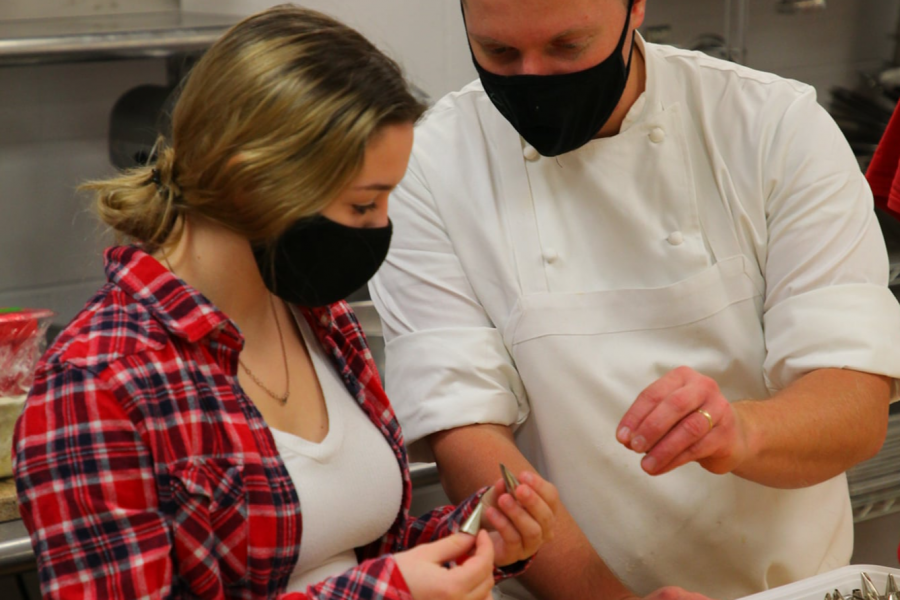How Covid has Changed Hands-on Learning within NCTC’s Programs: Part II
March 9, 2021
Part II
Culinary Arts
According to the NCTC program website, the Culinary Arts program is focused on “food service,” “workplace readiness” and “restaurant management.” Students gain knowledge of general skills and studies that industries may practice, allowing various opportunities through experiences such as St. Albans’s Fine Wine, Food and Beer Festival, and the BFA Honor Night, catering 350 people a five-course meal.
When asked how he has made adaptations to his program due to Covid, Adam Monette, NCTC’s Culinary Arts instructor, said, “Due to the generous space we have, the curriculum and hands-on learning during the pandemic looks the same. We have had to reinforce safety practices that should have already been there. The pandemic has changed the whole scope of how we view takeout and preparation, removing a lot of the authentic learning such as catering events, along with the ingenuity of business and being creative and working around the perimeters that we were given.”
Monette added, “Knowledge but no application diminishes the outcome but, as a whole, life still continues.”
Digital Media
According to the NCTC program website, Digital Media is a “project-based program” aimed towards creative individuals interested in the arts and technology. The website also notes that the program “utiliz[es] state-of-the-art technology and the most relevant software.” The program creates opportunities for future careers in graphic design, video production, photography, web design, coding and more.
“I still prioritize hands-on workshops for my students, but I constantly remind my students to adhere to social distancing protocols. Due to the pandemic, I try to show fewer instructional videos during our in-class sessions, and I utilize virtual Wednesdays for having everyone watch streaming videos and then discuss the content. One important aspect of the Digital Media Program is working in the field, doing promotional video production for local businesses and covering local news events. Due to Covid-19, it is impossible to have a large group of students do this type of production work, especially indoors during the winter months,” Steven Davis, NCTC’s Digital Media instructor said.
Due to the requirements of safe distancing, Davis said, “Students no longer share workstation tables. Each computer workstation is approximately 6 feet away from neighboring tables. We cannot use the antiviral spray on keyboards, mice and graphic tablets, so I distribute small isopropyl wipes to the students. In addition, each student has their own dedicated digital mirrorless camera and pair of headphones at their workstations.”
Additionally, Davis spoke about the importance of sanitation and time lost due to this: “Covid has definitely added a whole new layer of time management to disinfect and sanitize workstations, which obviously takes away time I could normally devote to helping students with questions and learning opportunities,” Davis added.
Engineering Technologies
According to the NCTC program website, Engineering Technologies is a “college-preparatory program,” giving the students an opportunity to “pursue a career in technology, engineering, computer hardware” and more.
Doug Bell, NCTC’s Engineering Technologies instructor, spoke about this year and how he has adapted his program: “Since the tech center has gone back four days a week, teaching has been easier; the class is quiet due to students being too far apart to be able to communicate successfully. The biggest problem is there is not a lot of hands-on learning; students are not allowed to touch the same part of a model. I had to get individual kits for the students to work with that they could take home for virtual learning.”
Although work within the classroom has been limited Bell, added, “I have seen students who used to be passive learners step up, during the pandemic they were forced to develop skills they didn’t know they had.”

